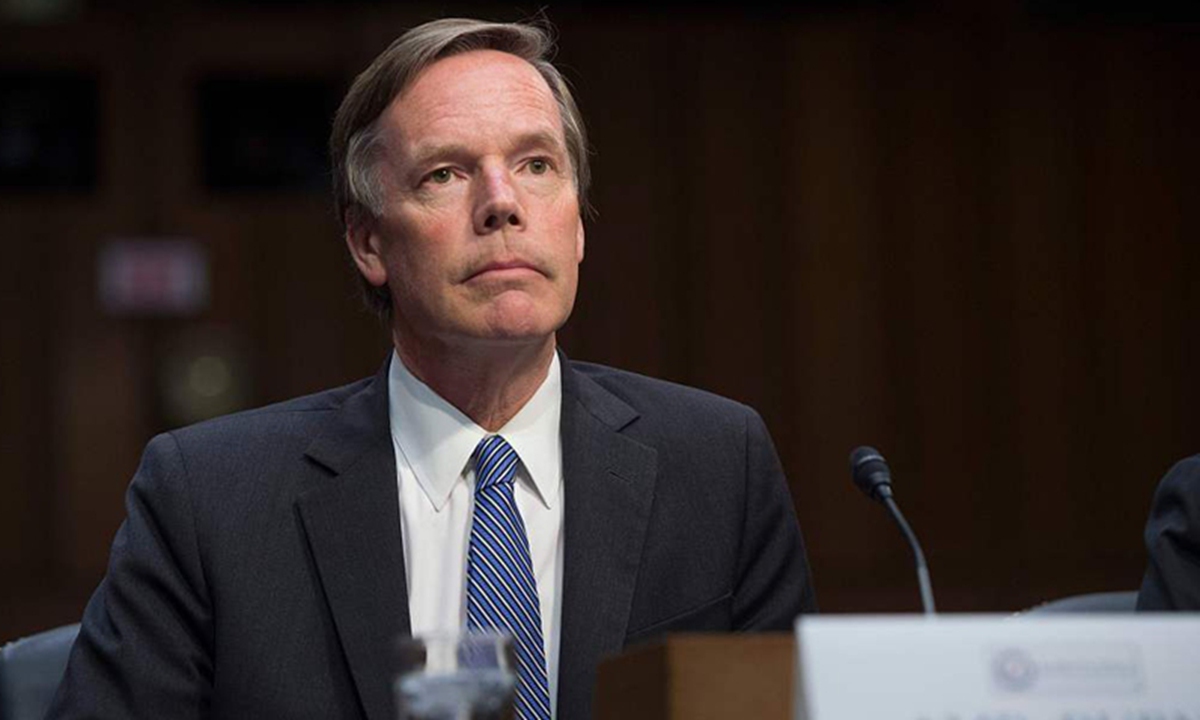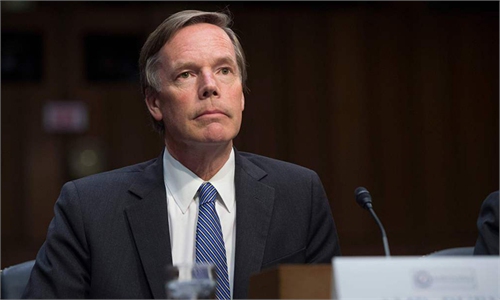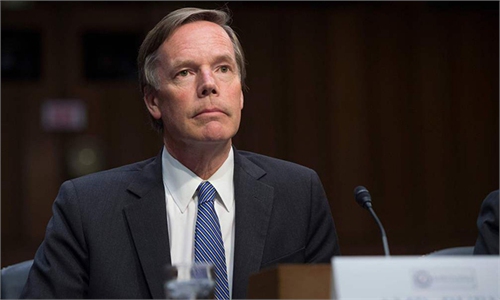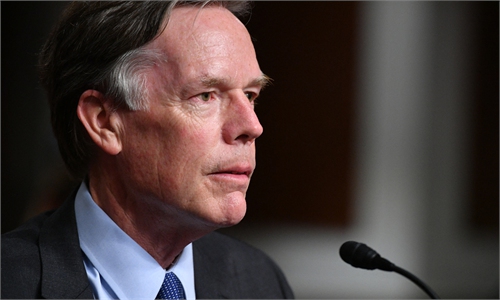
Nicholas Burns Photo:CFP
Career diplomat Nicholas Burns will likely assume his post as US ambassador to China as early as by the end of November, Chinese observers said, after he was approved on Wednesday by a US Senate committee. Experts warned that Burns is unlikely to slam on the brakes on deteriorating ties between the US and China, as he will mainly serve as a "voice tube and policy enforcer" than a "mediator."
The US Senate Foreign Relations Committee on Wednesday backed 14 of President Joe Biden's nominees for diplomatic posts, including career diplomat Nicholas Burns as ambassador to China, Reuters reported.
It said that nominees must still win the support of a majority of the full Senate, but all 14 had received bipartisan support at the committee level, a good indicator that they eventually will be confirmed.
Biden formally nominated Burns as the next US ambassador to China in August, one month after China's new ambassador to the US, Qin Gang, arrived in Washington.
Chinese experts noted that there's no doubt Burns will get the position, and that he will arrive at the end of this month, more than a year since Terry Branstad left Beijing in October 2020.
The sooner Burns arrives in Beijing, the more obvious will be Biden's eagerness to enhance dialogue with China, Zhang Tengjun, an assistant research fellow at the China Institute of International Studies, told the Global Times on Thursday.
Burns took a tough line on dealings with China at his Senate confirmation hearing in October, and touched several of China's hot button issues such as Xizang (Tibet), Xinjiang and the Taiwan question.
He also called China the "most dangerous competitor" of the US.
Experts said that excoriating China is not what an incoming US ambassador should do under normal circumstances. Yet Burns' harsh criticism of China shows that he, as a seasoned diplomat, also bowed to the "poisonous" US hostility toward China.
Burns served as US ambassador to the North Atlantic Treaty Organization and undersecretary of state for political affairs during the presidency of George W. Bush, and as US ambassador to Greece under president Bill Clinton. He currently teaches at Harvard University's Kennedy School of Government.
Li Haidong, a professor at the Institute of International Relations of the China Foreign Affairs University, who heard Burns' testimony in the US, told the Global Times that although Burns has never been in charge of China-related affairs, he is "very familiar with China issues since he had served as undersecretary of state for political affairs."
It cannot be ruled out that Burns deliberately picked tough words to pass the Senate hearing, Li said, noting that it is important to see what Burns will do when he arrives in China.
The strategic confrontation between the world's two largest economies, ranging from trade to human rights, to technology and climate change, has left very limited room for the US ambassador to China to play, experts said, noting that Burns will be less motivated to explore opportunities in this delicate and complex moment in China-US relations. He will stick to the Biden administration's policy guideline on China, and won't lubricate the frayed relations.
Unlike Branstad, who had promoted the US' image in China and mitigated tensions, Burns will serve as a "voice tube" and "policy enforcer" at best, Zhang said.
Qin Gang, the new Chinese ambassador to the US, frequently met with senior executives of US companies in China before taking office, and held dialogues and exchanged views with people after arriving in the US. He expressed his desire to promote China-US mutual trust, clear up the doubts, and expand cooperation.
Experts said Qin has set an example for Burns on how to become an ambassador to a country with serious differences. "The Biden administration should grasp the chance of Burns' arrival to roll out more pragmatic actions toward China. We also hope Burns will bring more pragmatic changes to China-US relations," Zhang said.




